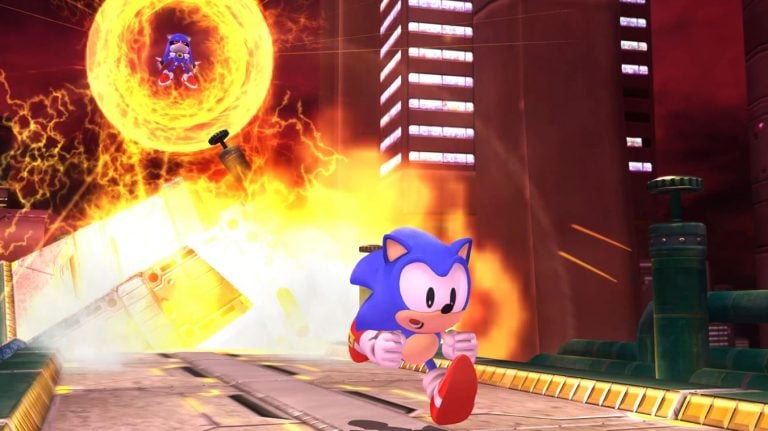Ken Akamatsu, who became a member of Japan’s House of Councillors in July, caused a stir on Twitter when saying, children would lose interest after playing a game for 3 hours in a day. At a glance, the statement looks to belittle gaming culture and drew heavy criticism, with Akamatsu later giving an apology for the remark. However, the intent of the entire statement seems more to do with Akamatsu’s concern about video games being made out to be the bad guy when it comes to children’s education.
Ken Akamatsu is the manga artist behind works such as Love Hina and Negima! Magister Negi Magi. Alongside his work as a manga artist, he’s also been an active voice against government censorship and was recently elected to Japan’s House of Councillors, the first manga artist in Japan to be voted into such a position. With his platform on freedom of expression for creators, he received 528,053 votes, and given his platform and background, was likely strongly supported by manga, anime, and video game fans.
Akamatsu recently made a statement that caused quite a stir online. The impetus for the statement was the result of Japan’s national achievement test which was held in April (related article). The test was taken by students in their sixth year of elementary school and third year of middle school, combining for a total of over two million students from across the country. A survey is also given alongside the test, and the results of this survey were used by Japan’s National Institute for Educational Policy Research to report that there’s a trend of “longer times spent playing games equating to lower test scores.”
On August 11 (JST), Akamatsu took to his personal Twitter account to talk about the above report, also saying that he held a discussion with the members of the Ministry of Education, Culture, Sports, Science and Technology. When he asked them, “Do you believe that if game time is reduced test results will improve?” they reportedly responded “No.” The ministry is likely of the opinion that game time alone isn’t the only factor for low test scores. Of course, even if one reduces their time spent playing games, if they don’t study, it’s hard to say their scores would improve.
Akamatsu continued by questioning the survey results regarding the average time a child spends playing video games each day. According to the survey, 30% of elementary school and middle school children said they play video games for more than 3 hours per day on weekdays. Akamatsu appears to find this doubtful and stated, “30% of elementary school and middle school students answering they play more than 3 hours a day is too high. They would get bored of playing.”
It was this remark that Twitter users were quick to jump on. While some did share the opinion that 30% seemed high, most of the responses were opposed to Akamatsu’s statement. For example, users pointed out that “Nowadays, playing a game for more than 3 hours isn’t that rare,” and, “They aren’t necessarily only playing one game.”
In addition, more than a few Twitter users took “They would get bored of playing” as dismissing gaming culture and the appeal of gaming. Many responses directly opposed Akamatsu saying he’s against gaming content, doesn’t stand on the side of otaku, and that games are appealing enough to play for that long.
Akamatsu soon made a tweet apologizing for the remark, calling it “excessive.” Despite this, some are still saying that Akamatsu’s true feelings on games are that he doesn’t take them seriously.
“I want to apologize for my poor wording. My intention was to question if children nationwide are really gaming for more than 3 hours a day on weekdays and if the basis of our analysis should really be simply based on children’s responses to the survey. Saying ‘They would get bored of playing’ was excessive. I will be more careful going forward.”
The point of Akamatsu’s tweets was that he thinks games are potentially being vilified even though the children’s playtime wasn’t accurately measured, and other potential factors weren’t taken into consideration.
In addition, the children answered the survey themselves. Like Akamatsu explained, there’s some logic to whether it’s okay to base the entire analysis on the testimony of children. In other words, Akamatsu’s remarks can be seen as trying to protect impressions of the pastime from deteriorating.
It also seems incorrect to say Akamatsu has no knowledge or concern with gaming. To start, after he was elected, he revealed that he had put together a team of experts to tackle the issue of game preservation and wants a legal framework to do so (related article).
He also has game development experience from working on the PC-8801 action RPG PALADIN. In a blog post looking back on the game’s development, Akamatsu says that he’s enjoyed games since he was a kid and played with ROM cartridges from morning until night when speaking of his love for games and programming.
He also played the MMORPG Ultima Online for over 10 years and said he would get so absorbed in it that he would forget to eat or sleep. If you believe what he has said about his gaming experience, it’s hard to deny that he probably knows the appeal of gaming and what it’s like to be absorbed in a game.
“I asked if my previous experience playing Ultima Online for over 10 years and being so hooked that I forgot to eat or sleep and held off on going to the bathroom counted as gaming disorder. They said if you still wrote two hit manga and saw no decline in social functions then it doesn’t apply. I was relieved lol.”
When you take all of that into consideration, Akamatsu’s remarks about playing for over 3 hours aren’t a rejection of the fun of gaming, but more a poorly worded way of calling the data into question.
But the remark is ultimately Akamatsu’s personal opinion. There may be a gap between his understanding of how games are played nowadays or how children are actually playing games. As Akamatsu admitted, perhaps his word choice was poor, making criticism unavoidable.
He also offered the idea of using the Nintendo Switch Parental Controls app or a survey to parents as a way to get data, but it’s questionable whether these would yield accurate results regarding playtime either.
Akamatsu’s overall message is that he is seeking a closer examination regarding any correlation between playtime and test scores. Gaming isn’t the only type of entertainment or lifestyle choice that could potentially impact academic performance. But when information saying playtime correlates to test scores is put out on its own, it could lead to the misguided idea that making a child quit gaming will improve their test scores. Akamatsu’s tweets raise concern over the hasty argument that games are the bad guy.
A child’s development can change depending on a variety of circumstances, and there’s still a lot we don’t know about the connection between games and education. And though often described as simply “gaming,” it can refer to a multitude of different experiences that may impact children in different ways.
Despite this, games are often harshly targeted by politicians and the general population, even over other forms of entertainment. We can see examples of this with the WHO recognizing gaming disorder and Kagawa, Japan implementing an ordinance to limit playing time for children on weekdays. When considering the scrutiny gaming is facing, how much Akamatsu values gaming culture as a politician will likely be decided by his actions going forward.
Written by. Nick Mosier based on the original Japanese article (original article’s publication date: 2022-08-13 15:25 JST)





